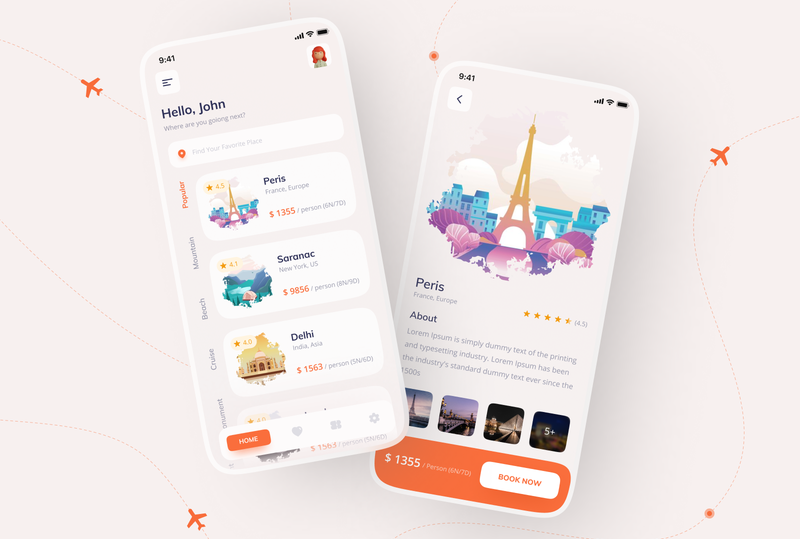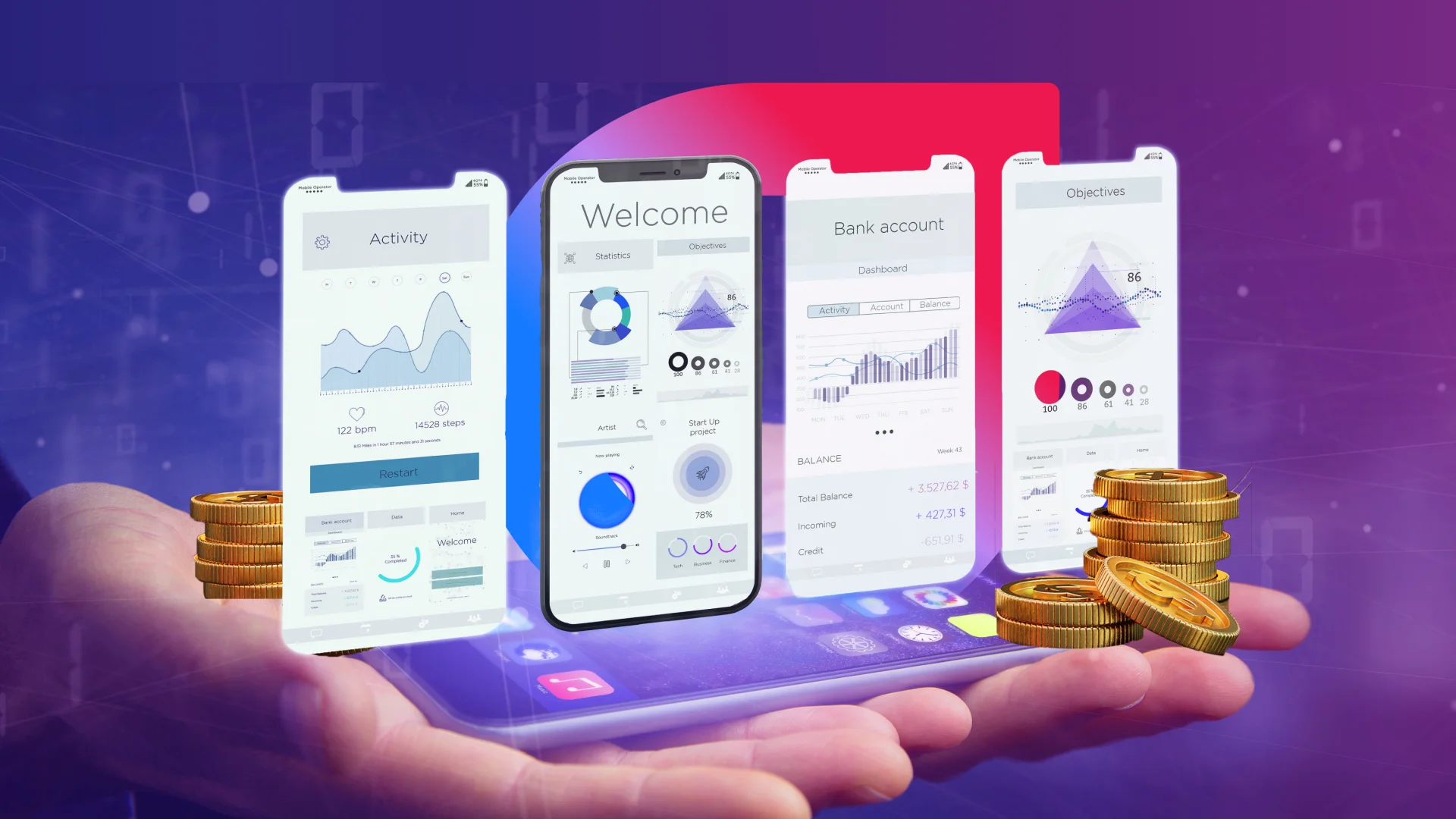6 Features That Guarantee The Success And Growth of a Travel App
- Mobile
- December 27, 2019
The tourism industry trumps most sectors in terms of growth and popularity.
People nowadays are more interested in exploring the hidden mysteries of the world than ever before. Its expansion is evident in the fact that the global travel and tourism sector grew at a rate of 3.9% in 2018.
It recorded a revenue of $8.8 trillion and ended up creating 318 million jobs, as per WTTC survey.
Given the numbers, it is plausible to assume that there must be some factors that triggered its growth. And while we can go on for hours about universally changing perceptions about tourism, there is one element that holds the biggest credit. That is – technology.
How Technology is Changing the Face of Tourism
The days of guidebooks, paper maps, and compasses are over. Instead, we have the interactive technical equipment and mobile apps which tag along with numerous functionalities.
You are no longer required to sit for hours to set up the itinerary. Just install an app and let it handle all the tedious tasks.
These days, almost every traveler carries a smart device with themselves. So the mobile apps carry a benefit for them as well as the developers. The latter will be earning money through the app if they design it as per the needs of the market.
Travel application development is a field that has sparked the interest of many aspiring developers. Its Return on Investment (ROI) beats most other app categories.
Read also: Advantages of Having Mobile Apps for Your Travel and Tourism Business
What Makes a Successful Travel App?

All you need is to have:
- A brilliant idea
- A fully structured, strategic plan
Scrutinize the market to know what people are looking for. You will find a whole list of pain points that you can address through your application.
For your insight, we have listed six essential features for the growth and success of a travel application. Let’s scan through them:
1. Geolocation Tracking Services
Once a tourist reaches their destination, they want to check in to a hotel or relax in a cafe for a little while. That is why every travel app must have a geolocation feature.
It will help the travelers to track their location and find viable places nearby. They can wander about the new place without depending on any local guide or tour services.
Google provides Google Maps SDK for Android and iOS to implement this feature. It helps to add the map in your travel app along with the navigation and routing options.
Even though the addition of this feature will raise the overall development cost of your app, but when you ignore its integration, the chances of failure are pretty high.
Read also: Things To Know Before Developing A Geolocation Based Mobile App
2. Itinerary Generator
The biggest hassle for tourists is to manage all operations of the itinerary.
Planning where to go first and how to move ahead in your journey needs careful attention. Travel apps can relieve the users of this trouble.
These apps only ask the user about the places they wish to visit on their trip. Then they automatically design a travel plan that befits their requirements.
According to Travelport’s 2018 Digital Traveler Survey, 64% of the travelers in the US use apps to view their whole itinerary in one place.
You can seek assistance from apps like TripAdvisor and TripHobo. Each of these apps informs you about the hidden gems in the country you are visiting. They allow the users to enter the attractions they want to visit and craft a map that will work according to their schedule.
Curating an algorithm for all of these functions is not simple. You can choose to leave this feature and add up the others.
However, with this function in your app, you can turn your app into a highly useful tool for travelers. But make sure that the itinerary generator is helpful for the entire target community.
3. Weather Forecasting
A study shows that 51% of the US leisure travelers use travel apps to check on the weather of the places they are about to visit. It allows them to pack accordingly.
Also, some people pack up in haste without paying attention to the climatic conditions. Travel apps must have a real-time climate forecast feature. These will allow them to stay alert of the weather and make sure they avoid the natural calamities.
One app that is quite famous for its expert forecast capability is, AccuWeather. People can always install this app and check the weather of any place they want.
Having a weather feature in your app makes sure that the travelers won’t be moving towards any other application to check the weather. It should give them a thorough review of things like expected wind speed, the possibility of cloud formations, humidity, etc.
4. Booking Services
Besides itinerary, the most important thing on the mind of all travelers is the place they are going to stay in. Every one of them is looking for a place that is affordable, secure, and relaxing.

For this purpose, you must integrate a booking system within your application. It should help users to compare prices, categorize places, set reminders, and receive notifications about hotel offers.
A study conducted in 2018 revealed that 61% of the travelers in the US used smartphones for booking and payments. And now that we are about to enter in 2020, this number has surely multiplied exponentially.
You must make sure that your app makes the process of booking easier for the users. Add a search engine and smart filtering feature.
You can also partner with hotels and airline companies to offer exclusive deals and discounts to travelers. Or you may offer referral and joining bonus to the users. The point is, try your best to get more users on your side. But play fair.
5. Social Media Sharing
The integration of social media buttons is the feature that you cannot choose to ignore. People love to share and flaunt their experiences with their friends on social media.
A survey found that 70% of social media users share pictures and update their status when they are on vacation.
Hence, when you provide users an option to share their experiences on social media, it automatically brings exposure to your app. So it’s a win-win for all.
Then there is the registration part that you must consider. Adding the social media login option in the app will speed up the registration process for the users. You will also gain access to their social profiles, which you can use to customize deals for each user.
6. Reviews and Ratings
Moving about in the highly saturated market, we cannot ignore the importance of reviews and ratings. The modern-day travelers prefer to read up about the places they plan to visit.
As per Tnooz, leisure travelers read around six or seven reviews before making their bookings. Meanwhile, business travelers read an average of 5 reviews before they make the final booking.
Therefore, reviews about different places must be there in your app. The users should be able to have a look at the ratings and reviews when they make their final decision to visit a place.
Also, there should be a section that enables them to post their experiences after they have visited a place. It allows them to express themselves and connect with other travelers.
Parting Thoughts
Gone are the days when people waited for their travel agent to plan their trips. We have landed into the times where people can easily take care of their entire tour.
By designing travel apps, we can make the most out of this transformation. A dedicated travel mobile app brings you more traffic and conversion than mobile websites.
Such facts make it necessary for us to focus on developing a dedicated travel application. Plan each step with care so that moving up the virtual spiral becomes smooth.
FAQs About Travel App Development
The cost of making a travel app depends on many things like development platform, design complexity, features and functionality, the geographical location of a developer, etc. On average, the cost may range from $3,000 to $30,000.
There’s no simple answer to this question as travel app development time depends on many factors like development platform, design complexity, the total number of pages, experience level of designer and many more.
A travel app should have several features like geolocation tracking services, itinerary generator, weather forecasting, booking services, social media sharing, reviews and ratings, etc.













